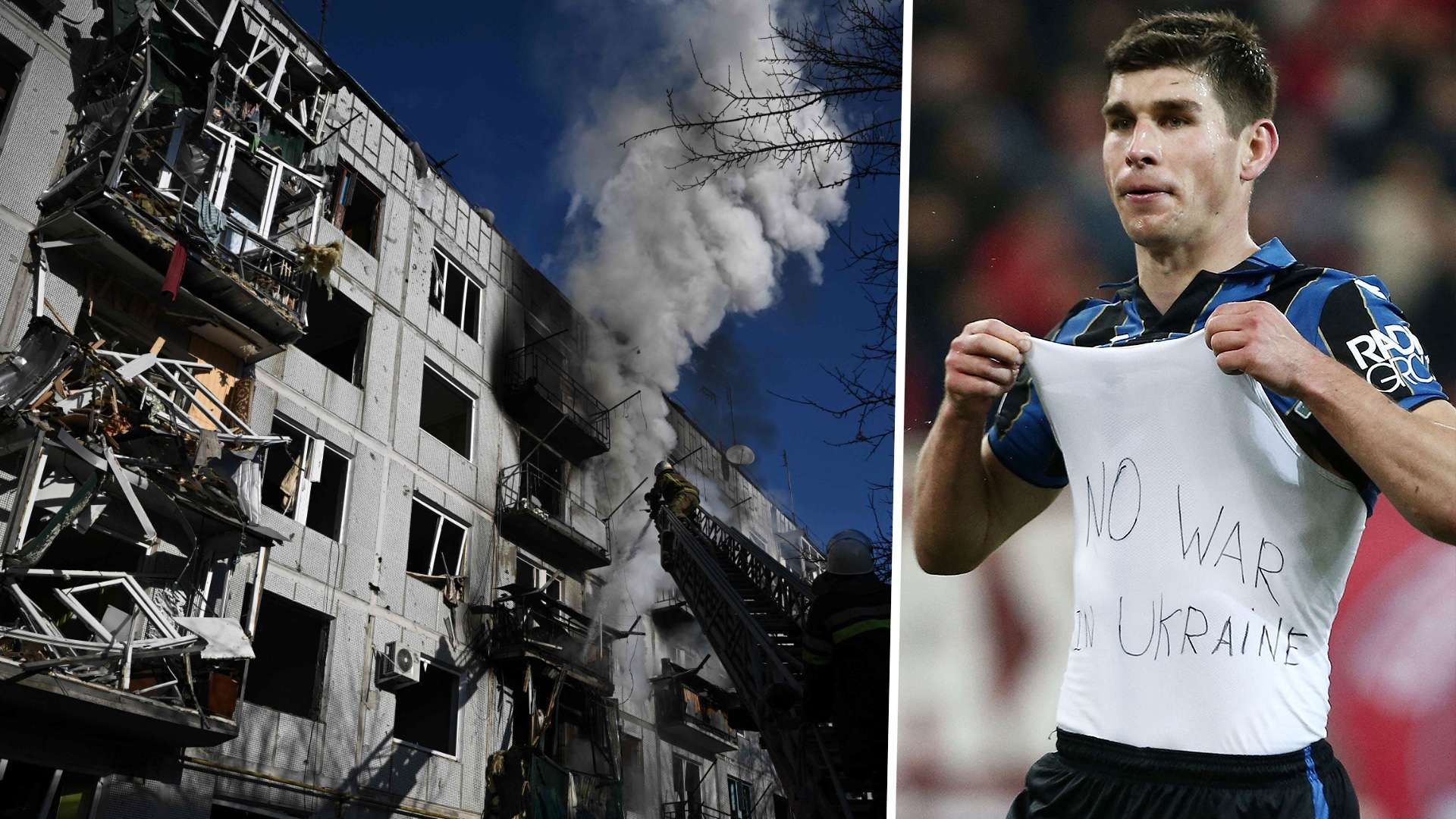Political tensions have heightened in Europe following Russia's invasion of Ukraine.
Football considerations pale into insignificance in such moments, but the game does not exist in a bubble and the reverberations have been felt across the continent.
So how has the military conflict impacted football in Europe? GOAL brings you everything you need to know.
Champions League final moved from Russia to France
The showpiece event of UEFA's flagship club competition, the Champions League final, was moved from the Gazprom Arena in St Petersburg to Paris following Russia's invasion of Ukraine.
European football's governing body confirmed the decision to strip the Russian city of hosting duties on February 25, two days after the invasion commenced. Stade de France in the Parisian district of Saint Denis will now play host to the final, which is scheduled for May 28.
Announcing the news, UEFA thanked President of France, Emmanuel Macron and the French government for their role in aiding the relocation of the game.
"UEFA wishes to express its thanks and appreciation to Emmanuel Macron for his personal support and commitment to have European club football’s most prestigious game moved to France at a time of unparalleled crisis," an official statement said.
"Together with the French government, UEFA will fully support multi-stakeholder efforts to ensure the provision of rescue for football players and their families in Ukraine who face dire human suffering, destruction and displacement."
A number of coaches have backed the decision to move the game from Russia, with Chelsea boss Thomas Tuchel saying it "had to happen", while Manchester United manager Ralf Rangnick said: "It's an incredible situation that we have a war in Europe and therefore the decision that UEFA took was inevitable. It was the right decision.
Russian and Ukrainian teams to play at neutral venues
Clubs and national teams from Russia and Ukraine who are competing in UEFA competitions will have to play their home games at neutral venues "until further notice".
That will have an impact on Spartak Moscow in the Europa League and also the Russia national team as they gear up for a World Cup 2022 play-off against Poland in March. Should Russia win against Poland, they will also have to play at a neutral venue against Sweden or Czech Republic.
Ukraine are also in the World Cup play-offs, but since they are already designated as the away team for their path, the UEFA decision will not affect these games.
Depending on how long the UEFA decision remains in place, it could have an impact on Russia and Ukraine's Nations League fixtures. That competition will be contested in June and September 2022. Russia are scheduled to play against Iceland, Israel and Albania, while Ukraine are in a group with Scotland, Ireland and Armenia.
The move from UEFA came amid pressure from national associations that are due to play against Russia and Ukraine. The Polish, Swedish and Czech associations issued a message to FIFA stating their view that Russia should be stripped of hosting duties for the World Cup play-offs.
Footballers stage protests against war
The escalation of military conflict in Ukraine following Russia's decision to invade the country has prompted a number of footballers to speak out against war.
In what was arguably the biggest game of the Europa League knockout round play-off, between Barcelona and Napoli, both sets of players posed in front of a banner which read 'STOP WAR'.
High profile Ukrainian football stars such as former Ballon d'Or winner Andriy Shevchenko and Manchester City midfielder Oleksandr Zinchenko posted emotional pleas for the defence of their country.
Russia international footballer Fyodor Smolov posted the message, "No war!" on social media, while Atalanta's Ukrainian player Ruslan Malinovskyi revealed a shirt which said, "No war in Ukraine" after scoring against Olympiacos in the Europa League.
Former Roma boss Paulo Fonseca, who is stranded in Kyiv, condemned the conflict as "an unacceptable war".
Other have been much more forthright in their criticism of Russia, with former Germany international Markus Babbel branding Vladimir Putin "a f*cking d*ckhead".
Football suspended in Ukraine
Unsurprisingly, professional football activity has been suspended in Ukraine, with the game's authorities responding to the ongoing tensions and uncertainty in the region.
Shakhtar Donetsk head coach Roberto De Zerbi revealed that he had been woken up by the sound of explosions when discussing his own personal safety.
De Zerbi said: "The Italian Embassy had urged us to leave but, I repeat, I am a sportsman, I could not turn my back on the club, on football and go like this - and in the end they closed the airspace and you are here."
A number of Brazilian footballers who play for Shakhtar and Dynamo Kyiv released a video showing them with their families as they pleaded for help from their government.
They said: "We're staying at this hotel, in light of the current situation, and we're asking you for help. There's a fuel shortage in the city, borders are closed, air space is closed, we can't leave.
"We're asking for help from the Brazilian government, we hope you can help by sharing this video and reaching as many people as possible."
The Ukrainian Premier League was postponed ahead of Gameweek 19 and it remains unclear when sporting activity will be allowed to resume.
Football clubs end sponsorship partnerships
Russia's invasion of Ukraine has placed a major strain on commercial partnerships between some clubs and Russian companies.
Manchester United withdrew sponsorship rights from Russian airline Aeroflot not long after the company was banned from flying to the United Kingdom.
In Germany, Bundesliga side Schalke will remove the lettering of Gazprom - Russia's state-owned energy company - from their jerseys, while Matthias Warnig, who is a representative of the company, will step down from the club's board.
Gazprom is also a partner of UEFA and pressure has mounted on the European governing body to cut ties with the energy giants, though it is unclear if a break will happen.
